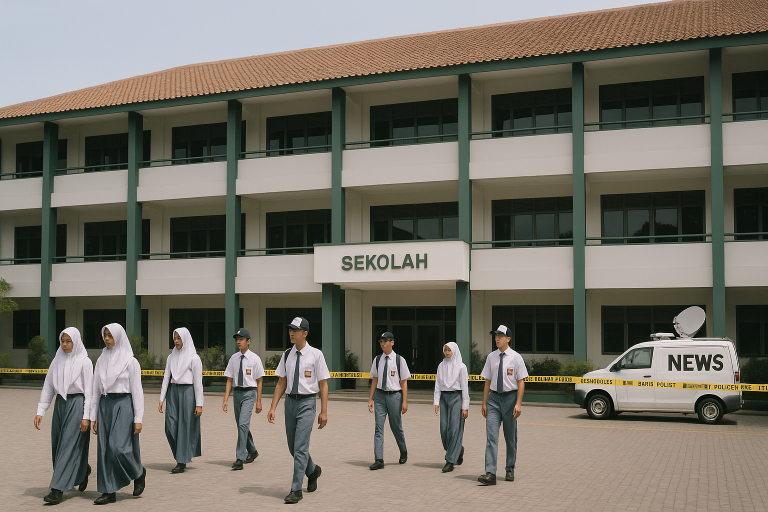Explosions rocked State Senior High School 72 in North Jakarta during Friday prayers last week, leaving approximately 96 people injured with burns, hearing damage, and shrapnel wounds.
A student allegedly involved in the incident was hospitalized for surgery.
Following the incident, Indonesian President Prabowo Subianto ordered his cabinet to investigate restricting violent video games, with government officials specifically citing titles like PUBG as potential culprits in normalizing aggressive behavior.
Officials have linked the investigation to concerns that shooting games make violence appear acceptable to young people, though the incident has also sparked debate about bullying and social media as contributing factors to youth violence in the country.
Understanding the government’s push for video game restrictions
Indonesia’s State Secretary Prasetyo Hadi explained the government’s reasoning without elaborating on specific restrictions yet being considered.
We’re thinking about restrictions because, in these games, there are many different kinds of weapons. It’s easy to learn. And, psychologically, it makes violence a normal thing.
PUBG: Battlegrounds, a South Korean battle royale title developed by Krafton and enormously popular in Indonesia through its mobile version, emerged as the primary target.
The government isn’t limiting its focus to a single title, however. Officials previously flagged Roblox in August amid broader concerns about violent and inappropriate content targeting children.
Jakarta Governor Pramono Anung Wibowo threw his full support behind the federal initiative.
The provincial government indicated it would back any policies the central government introduced to prevent similar incidents.
This coordinated response reflects a serious concern extending beyond the immediate tragedy to what policymakers perceive as a systemic issue with digital platforms and youth behavior.
Rising violence trends and youth gaming culture
Indonesia is at a bit of a turning point right now.
A growing number of young people are getting hooked on gaming, and not always in a healthy way.
Recent research says about 30% of Indonesian teens show signs of gaming disorder, and more than 80% of students admit they play violent online games.
That’s a lot of exposure to digital shootouts and battle arenas.
Experts have been warning about this for a while. They’ve found that the more time young people spend playing violent games, the more likely they are to show aggressive behavior.
In fact, one study of 162 students found that roughly two-thirds of those who played violent games regularly also displayed signs of aggression.
The thinking behind it? Social learning theory, basically, when kids see violence over and over again, even in a virtual world, it can start to feel like a normal way to deal with problems.
But the truth is, it’s not black and white. Some studies clearly link gaming and aggression, while others say the evidence just doesn’t stack up.
There’s still a lot of debate among researchers worldwide about whether violent games actually lead to real-world violence.
What’s less controversial is the issue of gaming addiction. The World Health Organization now recognizes it as a mental health condition.
And in Indonesia, local researchers say around one in four gamers struggle with mental health issues connected to violent or sexualized game content.
So, as Indonesia faces this new wave of concern, especially after the Jakarta school blast, the government is under pressure to do something.
But it’s tricky. On one hand, there’s a real need to protect young people’s mental health and keep schools safe.
On the other hand, gaming is a huge part of modern life here, as over 50 million Indonesians play online games.
The post Why Indonesia is considering video games curbs after Jakarta school blast appeared first on Invezz

